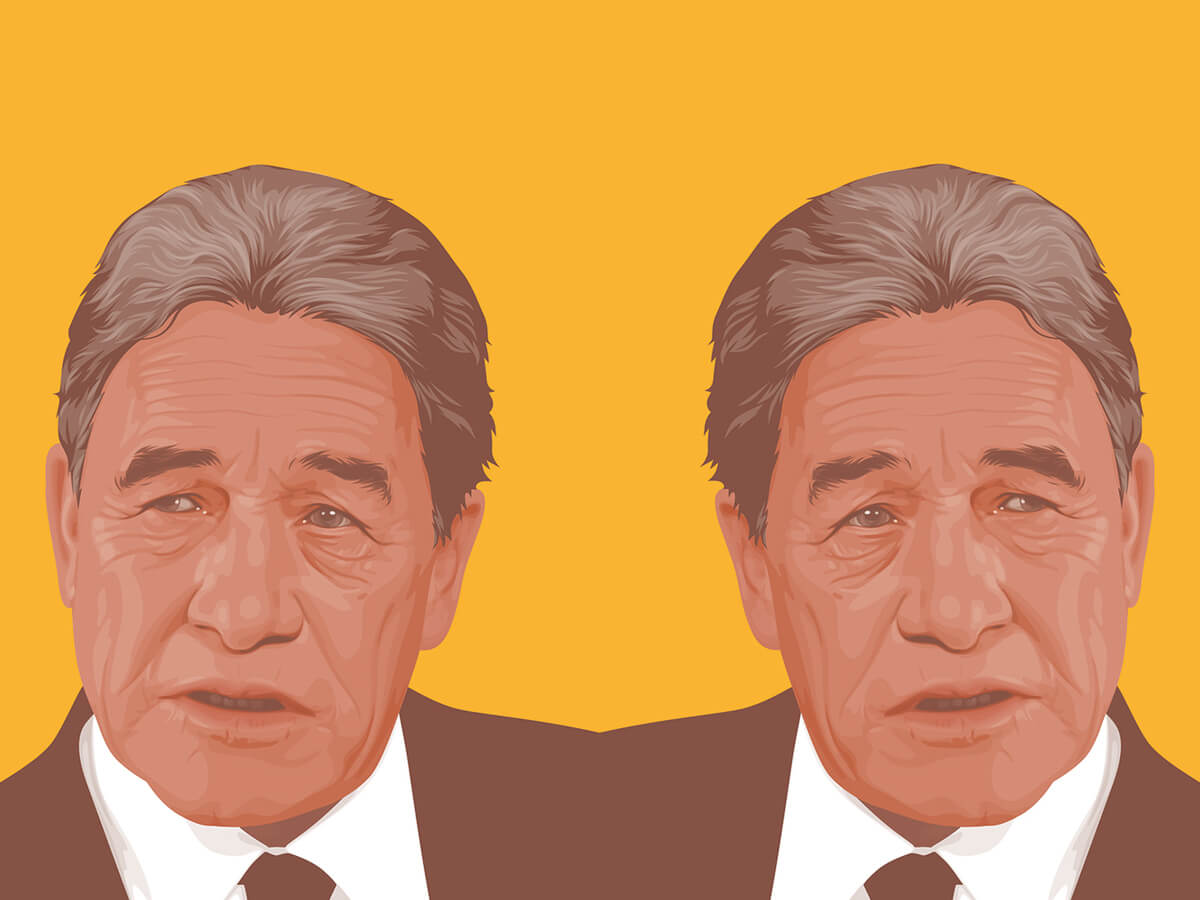Feb 3, 2020 Politics
The New Zealand First leader’s political ideology remains strangely indistinct.
I find it terrifying, and perhaps a little impressive, that Winston Peters’ career in politics straddles five decades, two centuries and two millenniums. Few, if any, politicians can make the same claim to permanence. Holyoake, maybe. Or Ngata. National’s Nick Smith is nearing 30 years’ service, but he can scarcely claim the same influence or fame as Peters. The New Zealand First leader really is a man apart. A former Maori Affairs minister, an ex-treasurer, a two-time foreign minister, and, in this Coalition government, an apparent co-prime minister.
Is this overstating the case? Only slightly.
Peters is the government’s putative deputy, but his say is always the last. Whether on the 90-day “fire at will” law or a capital gains tax, Peters’ word is law. The old man is willing to stop anything, from the very big, like repealing the “three strikes law”, to the seemingly small, like banning pill testing at the summer’s festivals. The same power works in reverse as well. Not only can Peters stop anything he dislikes, he can seemingly secure anything he does like. The Provincial Growth Fund, for example. Or the foreign ministership. But the weird thing is, for someone who takes so many stances and has done for so many years, Peters’ politics remain remarkably indistinct.
What does he want? What values does he centre his decisions on? What kind of world is he building? The closest I can come to an answer is that his ideology, such as it is, is based on his preference for the world the way it was. You can detect this in his government-making speech in 2017, telling the country capitalism must regain its “human face”. It emerges every time he denounces neoliberalism and the radical reforms of the fourth Labour and National governments to the nation’s economy and society.
For the New Zealand First base, it’s music to their ears. Peters voters are, after all, the people who think they went to sleep in one country and woke up in another. One moment, state-sponsored industries put thousands of people to work in good, secure jobs and the next, those same thousands were lining up outside the local Winz office. One moment, iwi were more or less invisible and the next moment, they were claiming hundreds of millions of dollars and reshaping regional communities and economies. Peters angles for a time before all of this when workers knew their place, bosses knew their responsibilities and there weren’t too many uppity Maori.
You can find this imperative to “go back” in the foreign minister’s signature achievement this term: realigning New Zealand’s foreign policy with the United States. In a speech at Georgetown University, Peters made a not-so-subtle plea to the United States to deepen and broaden its engagement in the Pacific. The plea came as New Zealand toes the US line on sensitive issues like Huawei and the 5G network. It’s quite the dramatic turn from foreign policy under the last Labour-led government, when the Cabinet was keener to walk the tightrope between a great-power China and a superpower US rather than, as now, picking a side and jumping.
In hindsight, the US shift was probably inevitable. Foreign policy experts will tell you Peters was close to former US Secretary of State Condoleezza Rice in his first go as foreign minister. And in a way, this has very important implications for the 2020 election. Not in that Peters will campaign on a foreign policy platform — he’s not that tone deaf — but that he’ll take lessons from the US. Peters, alongside his very clever and very capable chief of staff, Jon Johansson, probably this country’s best observer of US politics, knows the value of “down ballot” issues for firing up the base.
This is one reason the New Zealand First leader kicked cannabis legalisation and euthanasia to touch. Sending the issues to a referendum helps preserve his fragile left-right base mid-term and, more importantly, fires them up for the next election, ensuring the best possible turnout for his party. Nothing fires up conservatives like a good referendum vote to keep things the way they are. Vintage Peters. Expect him, then, to enter his sixth decade of service this year.
This piece originally appeared in the January-February 2020 issue of Metro magazine, with the headline ‘What does Winston want’.






